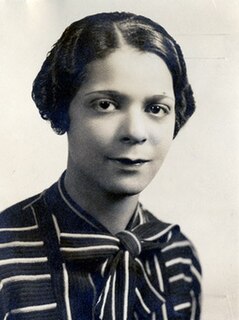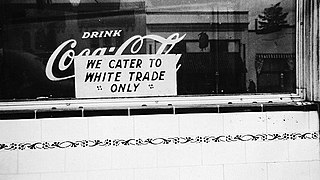
The Great Migration, sometimes known as the Great Northward Migration or the Black Migration, was the movement of six million African Americans out of the rural Southern United States to the urban Northeast, Midwest and West that occurred between 1916 and 1970. It was caused primarily by the poor economic conditions as well as the prevalent racial segregation and discrimination in the Southern states where Jim Crow laws were upheld. The historic change brought by the migration was amplified because the migrants, for the most part, moved to the then-largest cities in the United States at a time when those cities had a central cultural, social, political, and economic influence over the United States. There, African Americans established influential communities of their own. According to Isabel Wilkerson, the migrants and the children of the migration put the lie to the limiting ideology of Jim Crow, and exclusion. Despite, for many, the real sadness in leaving the South, and all the barriers faced by the migrants in their new homes, the migration was an act of individual and collective agency, which changed the course of American history, a "declaration of independence" written by their actions.

The National Urban League, formerly known as the National League on Urban Conditions Among Negroes, is a nonpartisan historic civil rights organization based in New York City that advocates on behalf of economic and social justice for African Americans and against racial discrimination in the United States. It is the oldest and largest community-based organization of its kind in the nation. Its current President is Marc Morial.

Vanport, sometimes referred to as Vanport City or Kaiserville, was a city of wartime public housing in Multnomah County, Oregon, United States, between the contemporary Portland city boundary and the Columbia River. It is currently the site of Delta Park and the Portland International Raceway.

Whitney Moore Young Jr. was an American civil rights leader. Trained as a social worker, he spent most of his career working to end employment discrimination in the United States and turning the National Urban League from a relatively passive civil rights organization into one that aggressively worked for equitable access to socioeconomic opportunity for the historically disenfranchised.

Thomas Jefferson High School is a public high school in Portland, Oregon, United States, founded in 1908.
Racial steering refers to the practice in which real estate brokers guide prospective home buyers towards or away from certain neighborhoods based on their race. The term is used in the context of de facto residential segregation in the United States, and is often divided into two broad classes of conduct:
- Advising customers to purchase homes in particular neighborhoods on the basis of race
- Failing, on the basis of race, to show, or to inform buyers of homes that meet their specifications.

The history of African Americans in Chicago dates back to Jean Baptiste Point du Sable’s trading activities in the 1780s. Du Sable, the city's founder, was Haitian of African and French descent. Fugitive slaves and freedmen established the city's first black community in the 1840s. By the late 19th century, the first black person had been elected to office.
The Chicago Freedom Movement, also known as the Chicago open housing movement, was led by Martin Luther King Jr., James Bevel and Al Raby. It was supported by the Chicago-based Coordinating Council of Community Organizations (CCCO) and the Southern Christian Leadership Conference (SCLC). The movement included a large rally, marches, and demands to the City of Chicago. These specific demands covered a wide range of areas besides open housing, and included quality education, transportation and job access, income and employment, health, wealth generation, crime and the criminal justice system, community development, tenants rights, and quality of life. Operation Breadbasket, in part led by Jesse Jackson, sought to harness African-American consumer power. The Chicago Freedom Movement was the most ambitious civil rights campaign in the North of the United States, lasted from mid-1965 to August 1966, and is largely credited with inspiring the 1968 Fair Housing Act.
The Chicago Lawyers' Committee for Civil Rights is a consortium of American law firms in Chicago that provides legal services in civil rights cases
The Leadership Conference on Civil and Human Rights, formerly called the Leadership Conference on Civil Rights, is an umbrella group of American civil rights interest groups.

In the context of the 20th-century history of the United States, the Second Great Migration was the migration of more than 5 million African Americans from the South to the Northeast, Midwest and West. It began in 1940, through World War II, and lasted until 1970. It was much larger and of a different character than the first Great Migration (1916–1940), where the migrants were mainly rural farmers from the South and only came to the Northeast and Midwest.

Housing segregation in the United States is the practice of denying African Americans and other minority groups equal access to housing through the process of misinformation, denial of realty and financing services, and racial steering. Housing policy in the United States has influenced housing segregation trends throughout history. Key legislation include the National Housing Act of 1934, the G.I. Bill, and the Fair Housing Act. Factors such as socioeconomic status, spatial assimilation, and immigration contribute to perpetuating housing segregation. The effects of housing segregation include relocation, unequal living standards, and poverty. However, there have been initiatives to combat housing segregation, such as the Section 8 housing program.
Forrester Blanchard Washington (1887–1963) was an American pioneer in social work.

Crystal Bird Fauset was a civil rights activist, social worker, race relations specialist, and the first female African American state legislator elected in the United States, based in Philadelphia, Pennsylvania.
The following is a timeline of the history of the city of Portland, Oregon, United States.

Milwaukie Pastry Kitchen, established in the 1940s in downtown Milwaukie, Oregon, United States, at 10607 S.E. Main St., became the first black-owned and operated bakery in the state when Hurtis Mixon Hadley, Sr., and his wife Dorothy Butler-Bishop Hadley of Portland, Oregon purchased it in 1977. At that time, there were fewer than two percent African-Americans in the state, and even fewer Black-owned businesses. The Oregon Historical Society Museum selected the Milwaukie Pastry Kitchen for inclusion in a permanent exhibit in 2014.

Mabel J. Byrd was a civil rights activist and the first African American to enroll at the University of Oregon. In 1988, Byrd died at age 92 in St. Louis, Missouri. Byrd requested that money be donated to a scholarship fund in lieu of a memorial service.

The history of racism in Oregon began before the territory even became a U.S. state. The topic of race was heavily discussed during the convention where the Oregon Constitution was written in 1857. In 1859, it became the only state to enter the Union with a black exclusion law, although there were many other states that had tried before, especially in the Midwest. The Willamette Valley is notorious for hosting white supremacist hate groups. Discrimination and segregation are common occurrences against people of African, Mexican, Hawaiian, and Asian descent. Portland, the largest city in the state, continues to have one of the largest proportions of white residents of major U.S. cities.

Albina is a collection of neighborhoods located in the North and Northeast sections of Portland, Oregon, United States. For most of the 20th century it was home to the majority of the city’s African American population. The area derives its name from Albina, Oregon, a historical American city that was consolidated into Portland in 1891. Albina includes the modern Portland neighborhoods of Eliot, Boise, Humboldt, Irvington, King, Overlook, and Piedmont.

YWCA of Greater Portland is a charitable organization with a mission to eliminate racism, empower women, and promote peace, justice, freedom, and dignity for all. The organization serves Multnomah County in four major areas of programming, including youth services, domestic violence services, senior services, and social change.















